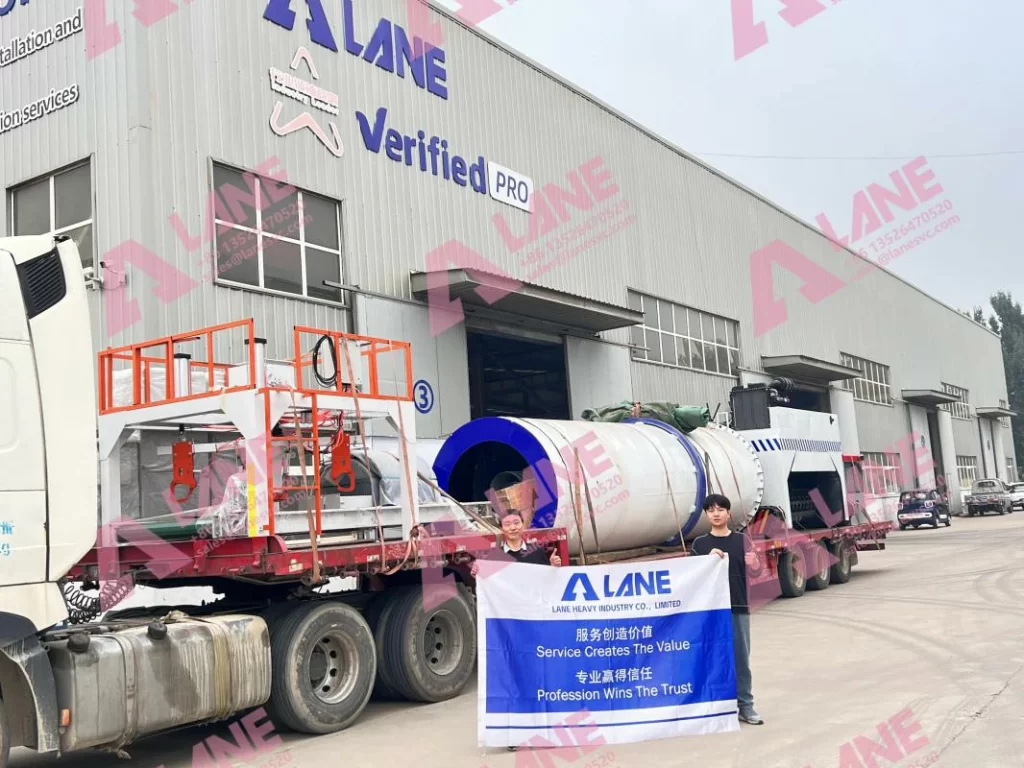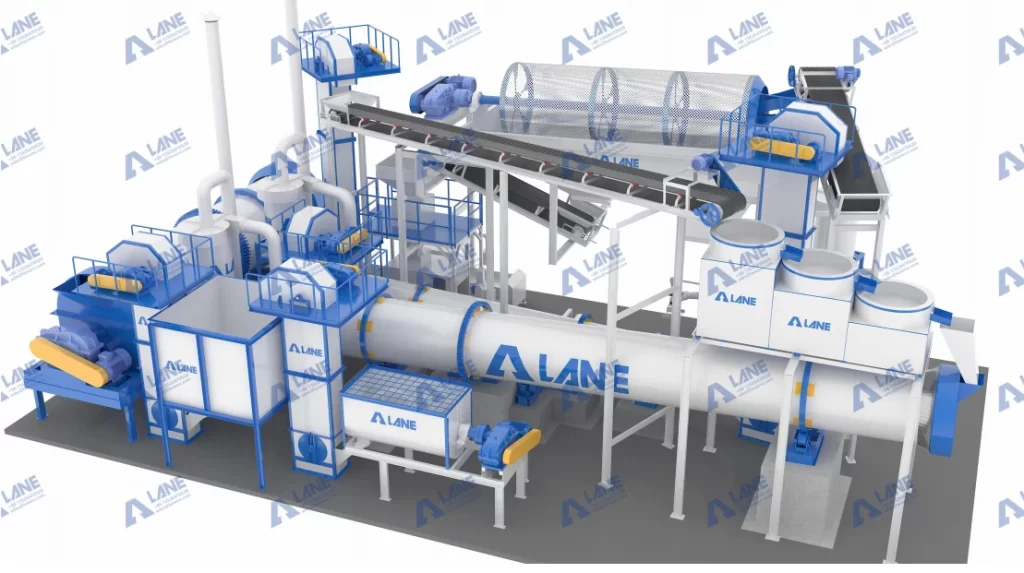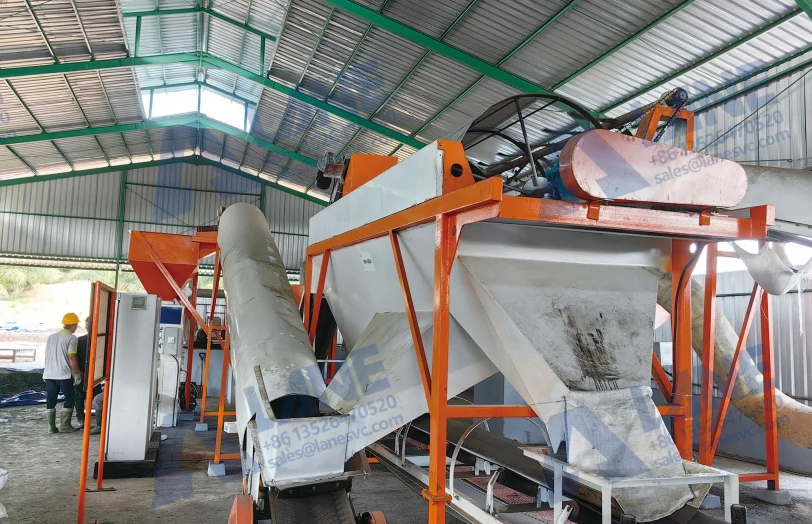The global demand for organic fertilizers is rising rapidly as farmers and agribusinesses look for sustainable alternatives to chemical fertilizers. Among the various types of organic fertilizers, powder form remains one of the most widely used due to its simplicity, cost-effectiveness, and compatibility with different farming systems. A powder organic fertilizer production line provides a complete and efficient solution to transform raw organic materials into fine, nutrient-rich fertilizers that are easy to apply in the field.
By recycling manure, crop residues, and other organic wastes, the powder organic fertilizer production line not only reduces pollution but also provides farmers with affordable, eco-friendly soil enhancers. Its relatively straightforward process and lower investment compared to granular lines make it ideal for both small- and medium-scale operations.

Why Choose a Powder Organic Fertilizer Production Line?
Low Investment Cost: Compared with granulation systems, powder fertilizer production requires fewer machines and lower initial investment.
Simplicity: The process flow is straightforward, making it easier to operate and maintain.
High Nutrient Retention: Minimal processing preserves organic matter and microbial activity.
Flexibility: The fertilizer can be applied directly to crops or used as a raw material for granulation later.
Eco-Friendly: Converts agricultural and animal waste into valuable inputs, reducing environmental pressure.
Workflow of a Powder Organic Fertilizer Production Line
The production process for powder organic fertilizer involves several key steps:
1.Raw Material Collection
Animal manure, crop residues, kitchen waste, and other organic inputs are gathered as raw materials.
2.Composting and Fermentation
Collected materials are composted in windrows or fermentation grooves. A crawler type compost turner or groove compost turner regularly stirs the pile to maintain aeration, control temperature, and accelerate microbial activity. The process typically lasts 20–30 days until the compost is mature.
3.Crushing
The fermented compost is sent through a semi-wet material crusher to break down clumps and create a fine, uniform texture suitable for powder fertilizer.
4.Screening
A rotary screener separates unfermented or oversized particles, ensuring product consistency.
5.Mixing (Optional)
For customized fertilizer blends, a horizontal mixer is used to combine compost with trace minerals or other additives.
6.Packaging
The finished powder fertilizer is weighed, sealed, and packed using an automatic packaging machine, making it convenient for storage, transport, and sale.

Advantages of Powder Organic Fertilizer Production Line
| Aspect | Powder Organic Fertilizer Production Line | Granular Fertilizer Production Line |
| Cost | Lower investment and energy use. | Higher cost due to drying and granulation. |
| Process | Simple, requires fewer machines. | More complex, requires granulators, dryers, coolers. |
| Nutrient Retention | High, less nutrient loss during processing. | Some nutrient loss due to heating and drying. |
| Market Value | Moderate, mainly for direct farm application. | Higher, preferred for commercial distribution. |
| Flexibility | Can be upgraded to granule line later. | Fixed product form. |
Case Studies of Powder Organic Fertilizer Production Line
Case 1: Poultry Farms in Indonesia
A group of poultry farms in Java adopted a powder organic fertilizer production line to recycle chicken manure. The line included a compost turner, crusher, screener, and packaging machine. The final product was used in nearby rice and vegetable farms, reducing costs and improving soil fertility.
Case 2: Dairy Farms in Poland
In Poland, dairy farms faced challenges with manure disposal due to strict environmental regulations. By establishing a powder organic fertilizer production line, they converted manure into saleable fertilizer products. This not only solved the waste management issue but also created additional income streams for farmers.

Applications in Agriculture
Field Crops: Rice, maize, and wheat benefit from improved soil organic matter.
Vegetables: Powder fertilizers boost nutrient availability for tomatoes, cucumbers, and leafy greens.
Fruit Orchards: Enhance root development and long-term soil fertility.
Soil Restoration: Used to reclaim degraded soils by adding organic content.
Challenges and Solutions
One of the main challenges of operating a powder organic fertilizer production line is dust generation during the crushing, screening, and packaging stages. Excessive dust not only affects product quality but can also create unhealthy working conditions. To address this, producers often install dust collection systems, sealed conveyors, and automatic packaging machines that minimize manual handling, ensuring a cleaner and safer production environment.
Another challenge lies in storage and moisture control. Powder fertilizers are highly hygroscopic, meaning they can absorb water easily, leading to clumping and reduced efficiency in the field. The solution is to use moisture-proof packaging, such as laminated bags, and to store products in dry, ventilated warehouses. Some facilities also add drying steps before packaging to extend shelf life and maintain product consistency.
A further issue concerns market competitiveness. Granular organic fertilizers are often more popular in commercial markets because they are easier to handle and apply. This can make powder fertilizers less attractive despite their lower cost. To overcome this challenge, producers highlight the advantages of powder products, such as higher nutrient retention and cost-effectiveness, while also marketing them as raw materials for granule production lines. In this way, powder fertilizer can maintain a valuable position in both local and industrial markets.
Market Potential
The global organic fertilizer market is growing, with powder fertilizers holding a strong share in developing countries due to affordability and ease of application. In Asia, Africa, and Latin America, the powder organic fertilizer production line is especially valuable for smallholder farmers and cooperatives. In Europe and North America, it provides raw material for granule lines or is sold directly for field applications.
Future Outlook
The future of the powder organic fertilizer production line lies in automation and integration with smart agriculture. IoT-based systems will monitor composting conditions, crushers will be optimized for energy efficiency, and packaging will be improved for long-distance export.
As sustainable agriculture becomes a global priority, powder organic fertilizer will remain a key entry point for farms seeking eco-friendly solutions. With the ability to scale into granule production lines, powder fertilizer production offers long-term flexibility and profitability.
The powder organic fertilizer production line represents a cost-effective and sustainable solution for recycling organic waste into valuable agricultural inputs. Its simplicity, low cost, and flexibility make it suitable for farms of different scales.
From poultry farms in Indonesia to dairy farms in Poland, real-world applications show its effectiveness in addressing waste management challenges and improving soil fertility. As the demand for organic products continues to grow, the powder organic fertilizer production line will play a vital role in building a greener and more resilient agricultural sector.
For more details, please feel free to contact us.
Henan Lane Heavy Industry Machinery Technology Co., Ltd.
Email: sales@lanesvc.com
Contact number: +86 13526470520
Whatsapp: +86 13526470520